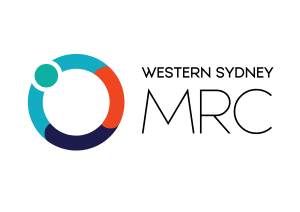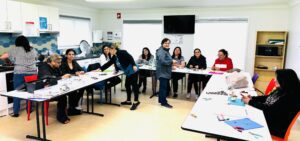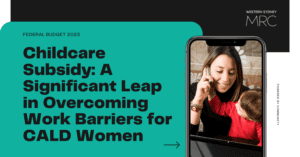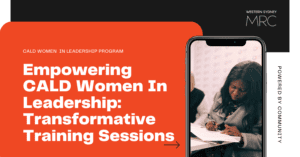(To the Hon. Chris Hayes MP, Member for Fowler)
The Liverpool MRC is a community based non-profit organisation established to actively and directly empower those whose social condition renders them disadvantaged. The Liverpool MRC works with newly arrived migrants, refugees, and diverse communities by building their capacity to take part in local life in Liverpool. Supporting the community into sustainable employment has been a major objective of the organisation over many years. Supporting Liverpool MRC is of major importance to actively engage with communities to establish independence, integration into all aspects of life and foster self-reliance.
Liverpool MRC is writing to you regarding the distribution of youth employment funding, namely the recently ‘fully subscribed’ Youth Employment Pathway, through the Industry Skills Fund, and the Youth Transition Support pilot programme.
Pertaining to the Youth Employment Pathways funding, recently fully subscribed two months earlier than originally stated, the Liverpool MRC understands that services in the Liverpool region again
missed out on this vital funding. After investigating the matter with other local organisations, the Liverpool MRC discovered a lack of awareness of the funding program, indicating a failure on behalf of the government to adequately promote the opportunity in an area that has high youth unemployment and non-participation in the labour force. The Youth Employment Pathway funding presented a promising opportunity to provide early intervention, holistic casework support for vulnerable youth towards returning to school, entering the workforce or beginning vocational training.
After putting considerable input into preparing an application, the Liverpool MRC was displeased to find that, without warning, the funding program had been closed. This resulted in a considerable cohort of vulnerable, at-risk Liverpool youth missing out on support under the program.
This follows the recent allocation of the Youth Transition Support pilot programme, rolled out in Western Sydney (Auburn, Parramatta and Blacktown) through Community Migrant Resource Centre and South West Sydney (Canterbury, Bankstown and Fairfield) through the Lebanese Muslim Association; to which Liverpool was excluded.
The Liverpool LGA is home to a diverse and vibrant culture due, in part, to its high intake of migrants predominantly from culturally and linguistically diverse (CALD) backgrounds. Furthermore, Liverpool has been flagged to receive a substantial number of the Federal Government’s recently announced special humanitarian intake of twelve thousand (12,000) ‘Syrian refugees’ in the coming three (3) years, on top of the planned intakes for the Family, Skilled, and Humanitarian programs.
Liverpool exhibits comparatively high unemployment rates, at 6.9%, compared with NSW at 5.9%1. These refer to persons not in the workforce but actively looking for work. There are also those who are neither in the workforce nor actively looking for work. The ABS Census classifies these as “Not in the labour force”, which the Liverpool LGA exhibits a higher rate than the State, at 3.9% (Liverpool) and 3.5% (NSW). Anecdotally, the figure of non-participation in recently arrived communities is much higher. Whilst the Liverpool MRC notes there is no uniform experience of unemployment, there are numerous barriers specific to new migrant youth that are currently unaddressed by existing services in the Liverpool LGA. These issues are compounded by the settlement experience that new migrants and refugees negotiate including basic orientation, language acquisition, lack of familiarity with Australian workplace culture, isolation, coping with trauma and lack of local work experience and training.
The majority of new migrants in the Liverpool LGA aged between 18-24 years report low English proficiency levels with most stating Nil or Poor English Language Proficiency2. Additionally, a substantial number of new migrant youth (up to 90%) who arrived in the last three years, recorded no tertiary education or no recorded primary and secondary education3. Liverpool MRC youth consultations (2011/12) with humanitarian migrants found that 92% of participants had missed up to five (5) years of schooling, placing them well behind their Australian counterparts4. These factors contribute, to a large degree, to difficulty in securing employment, obtaining education goals and engaging in the community. This brings to light the need for ongoing intensive support for this group into employment through community engagement, education support, workplace education and work experience.
The Liverpool MRC has extensive experience and expertise in the specialised field of working with disadvantaged migrants and refugees. Existing activities include the provision of information on recognition of overseas qualifications, support looking for work experience and successful job clubs. The Liverpool MRC is already well placed to deliver employment programs to new migrants and refugees, having Humanitarian Settlement Services (HSS) embedded in the organisation. The Liverpool MRC successfully provides the CALD community with advocacy and assistance in accessing services and providing information and referrals, assisting approximately ten thousand (10,000) clients per year. Additionally, the Liverpool MRC has the capacity to provide holistic support through existing Settlement Services Program (SSP) casework, community development programs, youth outreach to local Intensive English Centres (IEC’s), a youth homework program and complex case support (CCS). The existing services run at the Liverpool MRC leverage established and successful relationships with local Intensive English Centres (IEC’s), TAFE, youth organisations, legal services and other community organisations.
Furthermore, the Liverpool MRC has experience and expertise in successfully delivering employment support programs to the CALD community of Liverpool, including the Specialist Migrant Placement Officer Program that ended in 2005, Numerous Orientation to Work Force programs sessions, Training programs in partnership with TAFE for over 20 years, a Job Search Program (funded by DEEWR in 2013) and an African Employment Program in partnership HARDA in 2015 (the latter two projects acquitted with 100% success rate for participants).
The Liverpool MRC respectfully requests that urgent consideration be given to the needs of Liverpool by increasing the existing capacity of funding under the Industry Skills Fund the program and the Youth Transition Support pilot programme (DSS) to provide intensive support to youth in the Liverpool LGA.
The Liverpool MRC is well placed to deliver such services and support programmes to newly arrived entrants and the broader CALD community into employment, education and community engagement whilst encouraging social cohesion.
Kind Regards,
Kamalle Dabboussy, CEO Liverpool MRC
References: 1 ABS Census 2011. 2. Settlement Reporting Facility, DIBP, 2015. 3. Settlement Data, DSS, 2016. 4. Refugee Youth Consultation, LMRC, 2011/2012.
Lack of Youth Employment funding for Liverpool
(To the Hon. Chris Hayes MP, Member for Fowler)
The Liverpool MRC is a community based non-profit organisation established to actively and directly empower those whose social condition renders them disadvantaged. The Liverpool MRC works with newly arrived migrants, refugees, and diverse communities by building their capacity to take part in local life in Liverpool. Supporting the community into sustainable employment has been a major objective of the organisation over many years. Supporting Liverpool MRC is of major importance to actively engage with communities to establish independence, integration into all aspects of life and foster self-reliance.
Liverpool MRC is writing to you regarding the distribution of youth employment funding, namely the recently ‘fully subscribed’ Youth Employment Pathway, through the Industry Skills Fund, and the Youth Transition Support pilot programme.
Pertaining to the Youth Employment Pathways funding, recently fully subscribed two months earlier than originally stated, the Liverpool MRC understands that services in the Liverpool region again
missed out on this vital funding. After investigating the matter with other local organisations, the Liverpool MRC discovered a lack of awareness of the funding program, indicating a failure on behalf of the government to adequately promote the opportunity in an area that has high youth unemployment and non-participation in the labour force. The Youth Employment Pathway funding presented a promising opportunity to provide early intervention, holistic casework support for vulnerable youth towards returning to school, entering the workforce or beginning vocational training.
After putting considerable input into preparing an application, the Liverpool MRC was displeased to find that, without warning, the funding program had been closed. This resulted in a considerable cohort of vulnerable, at-risk Liverpool youth missing out on support under the program.
This follows the recent allocation of the Youth Transition Support pilot programme, rolled out in Western Sydney (Auburn, Parramatta and Blacktown) through Community Migrant Resource Centre and South West Sydney (Canterbury, Bankstown and Fairfield) through the Lebanese Muslim Association; to which Liverpool was excluded.
The Liverpool LGA is home to a diverse and vibrant culture due, in part, to its high intake of migrants predominantly from culturally and linguistically diverse (CALD) backgrounds. Furthermore, Liverpool has been flagged to receive a substantial number of the Federal Government’s recently announced special humanitarian intake of twelve thousand (12,000) ‘Syrian refugees’ in the coming three (3) years, on top of the planned intakes for the Family, Skilled, and Humanitarian programs.
Liverpool exhibits comparatively high unemployment rates, at 6.9%, compared with NSW at 5.9%1. These refer to persons not in the workforce but actively looking for work. There are also those who are neither in the workforce nor actively looking for work. The ABS Census classifies these as “Not in the labour force”, which the Liverpool LGA exhibits a higher rate than the State, at 3.9% (Liverpool) and 3.5% (NSW). Anecdotally, the figure of non-participation in recently arrived communities is much higher. Whilst the Liverpool MRC notes there is no uniform experience of unemployment, there are numerous barriers specific to new migrant youth that are currently unaddressed by existing services in the Liverpool LGA. These issues are compounded by the settlement experience that new migrants and refugees negotiate including basic orientation, language acquisition, lack of familiarity with Australian workplace culture, isolation, coping with trauma and lack of local work experience and training.
The majority of new migrants in the Liverpool LGA aged between 18-24 years report low English proficiency levels with most stating Nil or Poor English Language Proficiency2. Additionally, a substantial number of new migrant youth (up to 90%) who arrived in the last three years, recorded no tertiary education or no recorded primary and secondary education3. Liverpool MRC youth consultations (2011/12) with humanitarian migrants found that 92% of participants had missed up to five (5) years of schooling, placing them well behind their Australian counterparts4. These factors contribute, to a large degree, to difficulty in securing employment, obtaining education goals and engaging in the community. This brings to light the need for ongoing intensive support for this group into employment through community engagement, education support, workplace education and work experience.
The Liverpool MRC has extensive experience and expertise in the specialised field of working with disadvantaged migrants and refugees. Existing activities include the provision of information on recognition of overseas qualifications, support looking for work experience and successful job clubs. The Liverpool MRC is already well placed to deliver employment programs to new migrants and refugees, having Humanitarian Settlement Services (HSS) embedded in the organisation. The Liverpool MRC successfully provides the CALD community with advocacy and assistance in accessing services and providing information and referrals, assisting approximately ten thousand (10,000) clients per year. Additionally, the Liverpool MRC has the capacity to provide holistic support through existing Settlement Services Program (SSP) casework, community development programs, youth outreach to local Intensive English Centres (IEC’s), a youth homework program and complex case support (CCS). The existing services run at the Liverpool MRC leverage established and successful relationships with local Intensive English Centres (IEC’s), TAFE, youth organisations, legal services and other community organisations.
Furthermore, the Liverpool MRC has experience and expertise in successfully delivering employment support programs to the CALD community of Liverpool, including the Specialist Migrant Placement Officer Program that ended in 2005, Numerous Orientation to Work Force programs sessions, Training programs in partnership with TAFE for over 20 years, a Job Search Program (funded by DEEWR in 2013) and an African Employment Program in partnership HARDA in 2015 (the latter two projects acquitted with 100% success rate for participants).
The Liverpool MRC respectfully requests that urgent consideration be given to the needs of Liverpool by increasing the existing capacity of funding under the Industry Skills Fund the program and the Youth Transition Support pilot programme (DSS) to provide intensive support to youth in the Liverpool LGA.
The Liverpool MRC is well placed to deliver such services and support programmes to newly arrived entrants and the broader CALD community into employment, education and community engagement whilst encouraging social cohesion.
Kind Regards,
Kamalle Dabboussy, CEO Liverpool MRC
References: 1 ABS Census 2011. 2. Settlement Reporting Facility, DIBP, 2015. 3. Settlement Data, DSS, 2016. 4. Refugee Youth Consultation, LMRC, 2011/2012.







